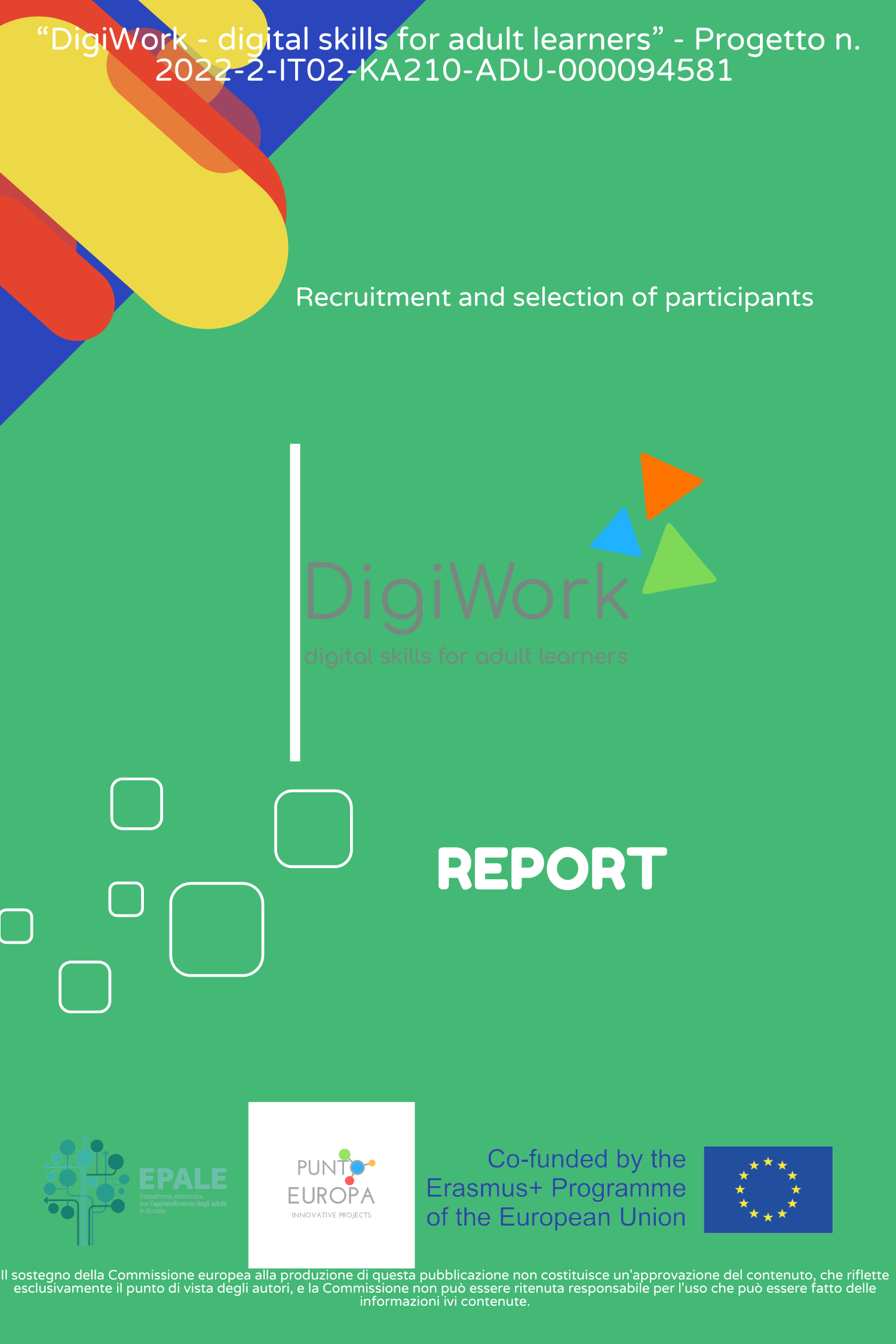Implementing the Participant Selection Procedure in DigiWork: A Comprehensive Report

Learn how the DigiWork project successfully applied tailored participant recruitment and selection strategies to empower adults over 45 with essential digital skills.
The DigiWork project, focused on enhancing digital literacy among adults over 45, required a carefully designed and executed participant recruitment and selection process to ensure its success. The recently completed report on the implementation of this procedure provides a detailed account of how each partner—Punto Europa (Italy), EduAge (Bulgaria), and Anglo Service (Spain)—adapted the strategy to their local contexts, ultimately leading to the successful engagement of the target audience.
Phase 1: Target Identification
The first phase of the procedure involved a thorough analysis of the local contexts to identify potential participants. Each partner employed different strategies based on regional characteristics:
- Punto Europa (Italy) conducted a territorial analysis in the provinces of Chieti and Salerno, identifying rural areas with high unemployment and low digital skills. By collaborating with local social services and employment centers, they were able to reach adults at risk of social exclusion.
- EduAge (Bulgaria) focused on urban areas with a significant number of workers over 50, identified through reports from the National Statistical Institute (NSI). The partnership with the Sofia vocational training center enabled them to connect with older workers in need of retraining.
- Anglo Service (Spain) mapped local SMEs in Andalusia, targeting companies struggling to adopt digital technologies. Collaborating with the Malaga Chamber of Commerce, they positioned the project as a means to enhance company competitiveness through employee training.
Phase 2: Engagement and Communication
Effective communication was key to engaging the identified participants. The partners employed various strategies:
- Punto Europa organized public meetings in the targeted municipalities, facilitating direct engagement with potential learners.
- EduAge hosted webinars in collaboration with vocational centers, providing detailed information about the project and encouraging participation.
- Anglo Service utilized professional mailing lists to reach companies, inviting them to online presentations and offering free training to employees in exchange for participation in the project’s monitoring and evaluation.
Phase 3: Support for Participation
To ensure high levels of participation, the partners provided logistical and motivational support:
- Punto Europa offered free transportation for participants from rural areas and distributed tablets to those without access to digital devices.
- EduAge scheduled courses during evenings and weekends to accommodate the work schedules of participants, providing greater flexibility.
- Anglo Service provided continuous technical support throughout the training, ensuring that participants could overcome any technological barriers.
The partners also implemented a robust feedback system, with Punto Europa using weekly questionnaires, EduAgeconducting mid-course interviews, and Anglo Service collecting feedback via online surveys. This ongoing feedback allowed for real-time adjustments and improvements, ensuring a high level of participant satisfaction.
Conclusion
The tailored participant recruitment and selection procedures implemented in the DigiWork project were crucial to its success. By understanding and addressing the specific needs of their local contexts, each partner was able to effectively engage the target audience, providing them with the tools and knowledge necessary to thrive in the digital age. The comprehensive approach not only facilitated the smooth execution of the project but also laid the groundwork for future initiatives aimed at closing the digital skills gap among older adults.